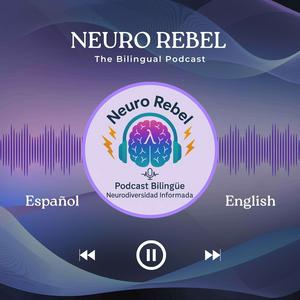The 7-Second Judgment: Why Neurotypicals Reject Neurodivergent People
Send us a textResearch shows neurotypical people form negative judgments about autistic, ADHD, and gifted individuals in seven seconds: snap judgments that scale into lifetime systematic exclusion.Drawing on University of Nottingham studies, we reveal how thin-slice judgments operate faster than consciousness. When audio-visual cues are removed, negative bias disappears, proving neurotypical prejudice targets communication style, not substance.We investigate the Double Empathy Problem: accusations that autistic people "lack empathy" are projections of neurotypical failures. Research proves neurotypical people struggle to read autistic emotions, yet blame autistic people for communication breakdown.Learn how seven-second cognitive bias becomes institutional oppression through "epistemic injustice:" systematic devaluation of neurodivergent testimony. From job interviews to healthcare to criminal justice, thin-slice judgments prevent contact needed to challenge prejudice.But there's hope: Education works. When neurotypical people learn about neurodivergence before judging, negative bias disappears or reverses. Knowledge interventions override automatic prejudice.We examine how marginalized communities defeated conceptual strongholds: demedicalization of homosexuality, disability rights Social Model, eugenics collapse. The neurodiversity movement deploys these strategies now.For neurodivergent listeners: You're not imagining it. Documented bias.For neurotypical listeners: You have unconscious prejudice. Here's how to override it.Full citations, transcript, extended bibliography at www.neurorebelpodcast.comContent warnings: discrimination, social rejection, systemic bias.Support the showThank you for listening to Neuro Rebel — the bilingual podcast where we flip the script on what it means to think differently. I’m your host, Anita: autistic, gifted, and a retired law professor on a mission to bring rigor, empathy, and a dash of rebellion to conversations about neurodiversity. 🔍 What we do: Each week, we blend evidence-based deep dives, solo reflections, and candid interviews with researchers and lived-experience experts. Expect English ↔ Español segments, sharp wit, real stories and actionable insights you can share with friends, colleagues, and classrooms. 🎧 Stay connected: • Subscribe on Apple Podcasts, Spotify, Pocket Casts, or wherever you listen. • 📲 Follow us on Instagram and TikTok @neurorebelpodcast for bonus clips, show notes, and community prompts. • 💌 Join our mailing list at https://www.neurorebelpodcast.com for episode transcripts, resource guides, and early access to live Q&As. 🤝 Support the show: If Neuro Rebel sparks new questions, challenges assumptions or simply makes you feel seen, please tell a friend or leave a rating—it means the world. You can also support us directly with a one-time donation or “buy me a coffee” at www.neurorebelpodcast.com/support Your generosity keeps this project fiercely independent, bilingual, and free of corporate agendas. ⚠️ Disclaimer: Opinions expressed here are mine alone and do not constitute professional...


